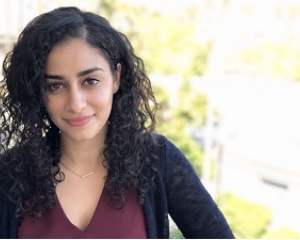It is rather daunting to balance those 6 subjects of IB plus the extended essay and TOK with medicine application (UCAT, BMAT and interviews). Many would fret over which should be given higher priority: is it the medicine application because if you don’t get in, then getting fantastic results in the IB does not seem so useful? Or is it the IB, since you need to meet the conditional offers that medical schools give you?
I would say they are both important but depending on the point of time you are in, you can give priority to one over the other.
Disclaimer: this article is more suited to lower sixth students (year 12) or below.
Many of your seniors might advise you to start early to eliminate your stress further on in the year. However, easier said than done. Hopefully, by the end of this, you will have a clearer view of what needs to be done at this crucial point in time to make sure you effectively manage the IB and your Medicine application.
Back up your IB grades with a solid Medicine Application.
Our Complete Bundle provides support for your Personal Statement, UCAT and Interview and guides you to a successful application.
With our Complete Bundle, we guarantee that you will get at least one offer to study Medicine, or your money back.


Managing the IB And Medicine Workload
A brief time plan should give you this:
- UCAT: July to October
- UCAS deadline: mid-October
- IB Coursework: (variable due to internal deadlines set by schools) generally, January to March
- IB Exam: May (or Nov)
One might notice that the summer after Lower Sixth holds much importance. So whilst ideally, you would use that summer to de-stress, relax and detoxify the toxins accumulated after one school year, your post-Lower Sixth summer should instead be put to good use revising for UCAT, BMAT, planning your personal statement and brainstorming ideas for extended essay and various pieces of coursework.
It does sound like hard work but here are a few tips to make it relatively durable:
Divide The Workload Into Easy-To-Manage Chunks
Don’t cram all the revision in one day. Instead, start a few months before the exam dates and do smaller chunks. We always recommend starting with the hardest topics first which could be for your IB exams, or for the UCAT, e.g. starting with Situational Judgement first.
Colour code all the topics and subjects to show which areas you find most difficult. As you get closer to the exams, ensure you are working through practice questions and papers each day and of course, nearer to the UCAT or BMAT, do try to do the whole thing under timed conditions. The same applies to IB revision.
Always practise under exam conditions to replicate the time-pressured nature of exams. If you keep overrunning on questions, then this is the opportunity to look at your exam technique and start working through new ways to answer the harder questions.
Remember Quality, Not Quantity
In those time chunks that you allocate to a subject, don’t focus on getting through as many questions as you can, but instead getting it correct. Try to get to the crux of why you got a question wrong, as a similar framework or thinking approach can be utilised for other questions.
Set Deadlines
Set your own internal deadline to complete the task. For instance, the deadline for personal statement is mid-October (the time when you need to submit your UCAS), you might want to set your deadline of submitting UCAS to early October, which means you should complete your personal statement by late August to give yourself plenty of time to give to your supervisors or friends to comment and for you to correct. So with UCAT, UCAS, BMAT and coursework out of the way, you can then focus on interviews and the Final IB Exam. Again, a similar approach can be used.
Don’t Underestimate The Personal Statement
Do not underestimate how long it will take you to write your personal statement. If you have an estimate in your mind about how long it will take you, consider doubling it, as this is certainly a document you do not want to rush. You need to spend time writing about your experiences in the best way possible that will convey your passion and skills to the Admissions Tutors. Think about the experiences you’ve had and, importantly, what you’ve gained from them. Demonstrating your ability to reflect on your experiences is important for your personal statement and for your future career in medicine!
Gain Medical Work Experience
Your post-Lower Sixth summer is the perfect opportunity to go out and get some work experience in preparation for your application. This is essential for Medicine and it’s the ideal way to demonstrate your passion to study Medicine and to show that you have some of the key qualities of a good doctor.
Sometimes, this will take some earlier preparation, depending on the experience you are after, but any medical-related work experience will give you insight into the world of healthcare.
With the added complexity of IB exam being 6 subjects with 2-3 papers each, another useful tip would be to spice things up by swapping subjects when you start to get bored or lose attention during revision. For example, why not do a Maths past paper when you get bored of revising for Chemistry?
Of course, do take time to relax, exercise and sleep!
So, good luck and see you on the other side!
Strengthen your entire application and guarantee your Med School Offer.
Our Complete Bundle provides support for your Personal Statement, UCAT and Interview and guides you to a successful application.
With our Complete Bundle, we guarantee that you will get at least one offer to study Medicine, or your money back.

